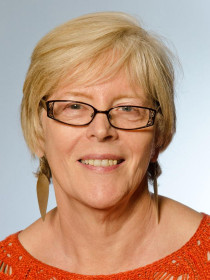
Katherine Fennelly
Connect with Katherine
About Katherine
Fennelly's research has focused on immigration and public policy. Overarching themes in her work include attitudes toward immigrants, and the preparedness of communities and public institutions to adapt to demographic changes. During her career at the Humphrey School, she consulted with countless nonprofit organizations and foundations interested in the integration of immigrants and refugees, and gave frequent talks on these topics to civic groups and the media. At various times she has served as a member of the Chicago Council of Global Affairs Midwest Coalition on Immigration and the Region's Future, a Visiting Senior Research Scholar at Princeton University, a Fesler-Lampert Chair in Urban and Regional Affairs at the University of Minnesota, a Willy Brandt Professor of International Migration and Ethnic Relations at the University of Malmo, Sweden, and a Scholar in Residence at the Rockefeller Bellagio Center in Italy. She is now based in New York City, where she continues to teach courses on Immigration, Health, and Public Policy, and to volunteer as a Spanish-English interpreter and legal advisor to local immigrant-serving organizations.
Contributions
The Congressional Stalemate on Immigration Reform
Immigration in the Midwest
Why Immigration Worries Americans – Especially Rural Residents
In the News
Publications
Analyzes the projected economic and fiscal impacts of Deferred Action for Childhood Arrivals (DACA) and Deferred Action for Parents of Americans (DAPA) for the state of Minnesota.
Examines patterns of congressional action and inaction on immigration issues in the United States over two decades, with attention to the impact of partisan polarization and examples of the effects of public opinion on members' votes and the immigration agenda itself. Covers 391 immigration policy votes between 1993 and 2012.
Identifies factors that influence restrictive views of nationalism and opposition or support for immigrants' rights during young people's formative years, among the generation that comprises today's young adults. Analyzes data from 77,000 native-born 14-year-olds from 25 countries surveyed in the IEA Civic Education Study of 1999.
Summarizes current national and local research on the economic impacts of immigration, written in language that is accessible to non-academics.
Analyzes public opinion toward a guest worker program and to compare predictors of support for guest worker and general immigration policies. Indicates that individuals who favor reducing the immigration level also tend to oppose instituting a guest worker program. Finds that residents of high-immigration states and Latinos were more likely to support a temporary worker program.